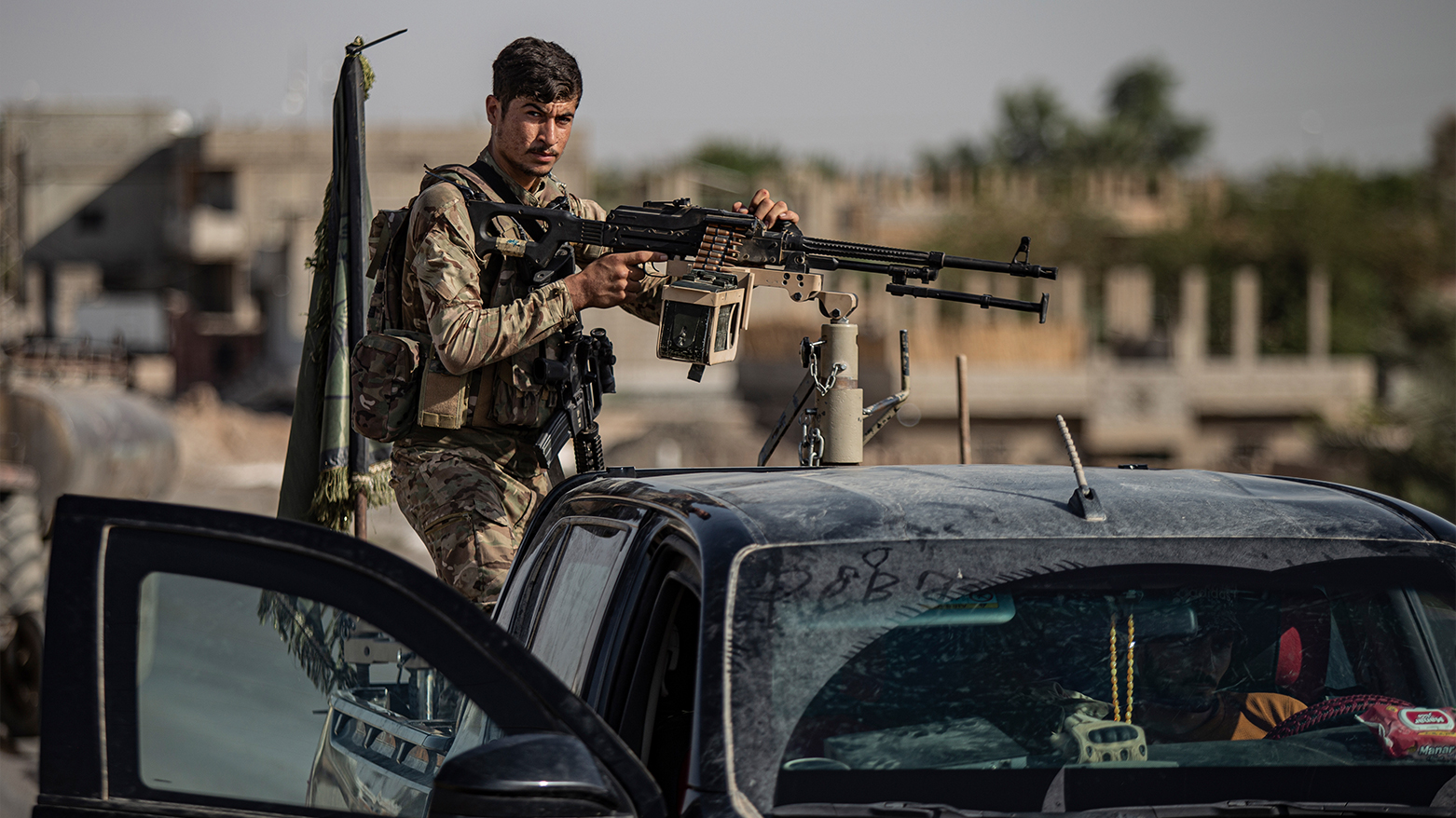SDF Refuses Disarmament Amid Rising Violence, ISIS Threats
The SDF denies reports of a 30-day disarmament deadline, citing rising violence and ISIS threats, Asharq Al-Awsat reports. The group seeks a conditional integration into the Syrian army as the US mediates talks with the new Damascus government.

ERBIL (Kurdistan 24) – The Syrian Democratic Forces (SDF) have denied reports of a 30-day deadline to disarm and integrate into the Syrian army, stating that handing over their weapons is impossible amid escalating violence in the country and a resurgent threat from ISIS.
In an interview with the London-based newspaper Asharq Al-Awsat, SDF spokesman Abgar Daoud forcefully rejected the notion of disarmament under current conditions.
“We reject surrendering our weapons in light of the escalating violence in southern Syria and increasing ISIS threats,” Daoud told Asharq Al-Awsat, responding to reports that the new Damascus government had set a one-month ultimatum for the SDF to join its military structures.
“Amid ongoing instability in Syria, the surge in violence, and the growing danger posed by ISIS, it’s unrealistic to expect the SDF to disarm,” he said.
The SDF’s stance comes at a critical juncture for Syria, just over six months after the government of Bashar al-Assad was overthrown in a swift offensive led by Hay’at Tahrir al-Sham (HTS) and its leader, Ahmed al-Sharaa, who is now Syria’s de facto head of state. The SDF, a key partner of the US-led coalition in the fight against ISIS, controls roughly one-third of Syria and has been navigating a complex new political landscape.
Daoud stressed that the SDF has been open to becoming part of a future Syrian state from the beginning but under specific conditions. “We are open to joining the Syrian army through a constitutional agreement that recognizes the uniqueness of our forces,” he explained to Asharq Al-Awsat, proposing the formation of a unified military bloc under the army’s banner within the areas they control.
US Mediation and High-Level Talks
The spokesman described a recent meeting between SDF General Commander Mazloum Abdi and U.S. envoy to Syria Tom Barrack as “positive,” adding that more talks were planned with the Syrian government to resolve outstanding disputes.
This was the second high-level meeting between the U.S. envoy and Abdi in a month, underscoring Washington's deep involvement in mediating the country's future security architecture. The first meeting, as reported by Asharq Al-Awsat, took place in Damascus on July 9 and was a major diplomatic event attended by Syria’s ministers of defense, interior, and foreign affairs, along with the head of intelligence, French envoy Jean-Francois Guillaume, and senior coalition military figures.
Daoud said the SDF has maintained “high-level operational coordination” with the new government in Damascus since December’s collapse of the previous regime and has avoided military confrontations. “We are not seeking war with any side,” he stressed. “But we will defend our people wherever we are.”
Security Fears Prompt Show of Force
The refusal to disarm is directly linked to the volatile security situation. The “escalating violence” mentioned by Daoud refers to recent deadly clashes in the southern province of Sweida between the local Druze community and Bedouin tribal fighters, a conflict that has drawn in the new government’s forces and stoked fears of wider sectarian strife. Meanwhile, ISIS continues to operate as a potent insurgency in the Syrian desert, launching attacks against all sides.
In response to these tensions, local sources in Raqqa and Hasakah reported to Asharq Al-Awsat that the SDF held a show of force this week, deploying heavy weaponry and military units in the cities of Raqqa, Hasakah, and Qamishli. New checkpoints were erected and patrols were increased on key roads.
Abdi Cites March 10 Agreement
SDF leader Mazloum Abdi had previously addressed the issue in comments to a German newspaper earlier this month, cited by Asharq Al-Awsat. Abdi stated that the SDF would have no need to disarm if the agreement signed with President Ahmed al-Sharaa on March 10 was implemented.
“We are fully committed to the terms of the agreement,” Abdi said. “Implementing it would make the SDF part of the Syrian army, and there would be no need to disarm now or in the future, since the responsibility for protecting northeast Syria would then fall to the Syrian army.”
The SDF controls most of Hasakah province, Raqqa city, Tabqa, parts of Deir Ezzor, and Kobani (Ain al-Arab), and has recently expanded its presence in Aleppo’s countryside.